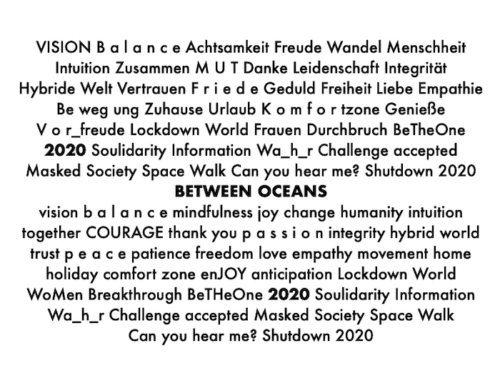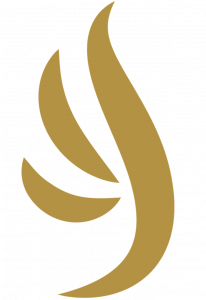A single opinion is comfortable. Comfort is hostile to change.
Progress is uncomfortable because it changes the comfort.
-Thomas Vato
Now that in many states of the world a certain ‘normality’ has returned, at least for the summer, and it can be observed and felt how we all rediscover and stake out our (pre-Covid times) beloved comfort zone and would prefer to hold on to it, the question that arises for me is how and when I, myself, have left my comfort zone and what the idiom ‘leave your comfort zone’, which has been popular for decades, can mean at all.
Brené Brown (US author of psychological writings) defines comfort zone according to Wikipedia as follows:
“Where our uncertainty, scarcity and vulnerability are minimized — where we believe we’ll have access to enough love, food, talent, time, admiration. Where we feel we have some control. When we get into times of social, political or financial instability, our comfort zones get smaller. The more afraid we are the more impenetrable our comfort zones buffers become. “Where we have the feeling to have something under control when we enter times of social, political or financial instability, our comfort zones become smaller. The more fear we have the more impenetrable our comfort zone buffers become.”
For me, I can clearly recognize that my sense of stepping out of my comfort zone has always been and continues to be very situational; there were consciously chosen adventures that let me go beyond my personal limits of fear and comfort, like climbing Mount Kenya and Kilimanjaro in November 2004, my tandem skydiving, various trainings for running competitions or my year in London at the end of the 1990s – and there were situations where I gave up my ‘financial security’ for personal development for a certain time – this kind of challenge is still the most difficult for me to accept, because it can involve a lot of risk and renunciation. And there are situations where you lose humans, where trusted and loved ones take other paths and on an emotional level you are suddenly pushed out of your comfort zone.
For sure, I can say for myself that I have actually learned the most for myself when I have stepped out of my comfort zone for any reason, intentionally or not. It also suits my nature to always seek for an adventure, new things, and to cross my personal boundaries of fear and comfort.
In the end, the question always remains: do I want to change and develop and am I willing to give up ‘comfort’?
“You can’t fulfill your calling inside your comfort zone”, says Johnathan Key.
JU’s 3 questions of July 2021 are the following ones:
👉Where does your personal comfort zone end and when have you already left it?
👉The Covid pandemic surprised us all in our comfort zones. How did you experience this and what new things did you learn in this process?
👉Is there an experience, a change that you would very much like to experience in the future, where you would definitely have to leave your comfort zone?
👉Johnny Lozovan 🇲🇩🇦🇹
I met Johnny through Volina (👉https://www.ju-nique.at/en/challenge-accepted-2/) – he is an architect and passionate about photography. I already appreciate Johnny as a photographer👏 I admire him for his creative, photographic eye as well as his empathetic nature and talent for creating sophisticated design.
👉Karlheinz Benke 🇦🇹🇰🇭
Karlheinz and I first met at the Department of Geography at the University of Vienna in 1986 and we subsequently attended and successfully completed numerous courses together. I admire Karlheinz for his professionalism, his talent for scientific work, his loyalty and modesty, his flair for music – not only did he always motivate me to continue with my studies, he also introduced me to the world of jazz in a very loving way and introduced me to an incredible number of musicians and musical genres – for this I would like to take this opportunity to thank him very much.🎩 Karlheinz loves ‘good music’.
Karlheinz loves listening to ‘good’ music 👉(https://jazzandmorestrangemusic.jimdo.com * https://classicalandmorestrangemusic.jimdo.com), hiking and biking .
👉Christopher Wimmer 🇦🇹
I met Christopher at a Weekly Long Run – we got into a very interesting conversation while running and have been friends on FB ever since. I appreciate his emphatic and open-minded attitude, his expertise in ‘exercise and sports’ and his love for Mother Earth. Christopher is a sports instructor and personal trainer and loves culinary, culture and to travel.
👉Johnny Lozovan 🇲🇩🇦🇹
Answer 1
When I think about it…I probably leave the comfort zone when I have to do a task at work or in my private life without automatisms. So, when I have to think with a clear head, without music (for me it doesn’t work otherwise) and do it quickly. So, I leave the comfort zone because I don’t have to think much without regretting what might happen. Getting things done outside the comfort zone is one thing that I find more difficult. The other is leaving the relationships’ comfort zone. There you have to fight with yourself a lot and give yourself a chance to meet new people.
Answer 2
Yes, the pandemic really surprised us. I have taken on more responsibility. In such times you learn how powerless even the powerful are: the bosses, the government etc. I learned that you don’t have to expect anything from others, you have to be able to do everything yourself. Not reading the press is always good, but it is difficult because it is sensationalized. To do your own thing consistently would be ideal, otherwise you end up in a victim orchestra.
Answer 3
Yes, definitely – carrying more responsibility on your own shoulders. To “burn” for something. No matter if in leisure time or profession. Moving to a foreign country and getting to know the new culture and integrating there for a few years. That would be an experience…
👉Karlheinz Benke 🇦🇹🇰🇭
Answer 1
I realize that I personally have a hard time answering a quasi-generalizing or standardizing question like this – precisely because (for me) it subliminally assumes that every person “always” has one.
And I see this question first of all from a professional perspective from (my) point of view as a manager: Here I perceive a “Why don’t you finally leave your comfort zone and do ….!” from hierarchical colleagues primarily as an appeal to their employees to (finally) do “more”, to give “more” than before. A quite “gentle pressure” on the (bad) conscience of employees to get out a “more” for the organization or the company by “motivating” the counterpart just as “gently” to those very switch positions, which were never striven for by the employee side (because personally e.g. uninteresting) anyway – but thus indirectly begins to exert pressure.
From a personal as well as private point of view, I think it depends very much on the respective situational context, in which something like “personal comfort zone” and staying in it or leaving it becomes effective – be it for reasons of comfort or also out of a certain protective instinct and need towards oneself or maybe even a certain “respect for one’s own inabilities/capabilities” (one could also say: recognition of one’s own competence limits ;-). In any case, stepping out of this zone always requires one’s own will.
But maybe it is quite simple and the “personal comfort zone” is simply found there, where the risk tips the balance against the personal security …
Answer 2
In my personal environment, I take away how small the circle of reliable “counterparts” has (become) – both in my private and professional life.
And on the other hand, how much importance is suddenly attached to online communication and digital consulting (even though my cousin in Australia is not geographically any closer and online/digital consulting has been established in Austria for almost 20 years anyway 😉 ).
So: a spatial retreat to the most private with simultaneous media condensations.
In the social environment – it was to be observed for me that many lip-pen confessions often did not even leave the face horizon. Systems of thought and action were and remain inert, which is why many obvious ideas and opportunities are still not used (“never change a running system”)… And only a few will continue to profit from the “persistence” (in) the comfort zone at the expense of many.
That suddenly – to bring only one example – e-cars, e-bikes, e-scooters are supposed to be quasi-revolutionary-ocological and “quasi-green” – my comfort zone world of thought persistently closes its mind to this learning insight.
Answer 3
Not that I know of or even have an idea about it – in my opinion, the driving force for leaving is always the individual “new greed” in the respective contexts (see also question 1), which is needed to enter further personal fear zones, learning zones and growth zones as well as to remain “alert” at the same time.
However: For sure, a blatant change would be such an incisive event as a job loss or similar, that destabilizes the personal structures and forces one to (re)think everyday life (routines) completely new, etc. But this is what one wishes for.
But that’s not what you want …
👉Christopher Wimmer 🇦🇹
Answer 1 – 3
Through the Covid pandemic, comfort zones have developed on the one hand and new boundaries have been shown to me on the other hand. Due to the closure of my yoga studio, in a year without yoga, I did not have the discipline to get the quality of exercises I was used to. This surplus of energy was first invested in enjoyment in the form of cooking for myself and a neighbor. While this was a wonderful social aspect, it also manifested itself in the form of weight gain and physical inertia. On the other hand, the closing of the yoga studio also meant that I have developed a toned-down version and enriched it with mediation exercises. I have been able and willing to do this sequence almost daily and have made a morning ritual out of it. Sometimes I let my girlfriend and friends participate, so that it became my personal zoom conference. Starting the day with a good 15 minutes every day. This led to other dynamics in the daily routine, which after a long period of laziness sparked the motivation in me to tackle my studies again and to conclude it. Thus, Covid has contributed to self-help.
#betweenoceans2020






Leave A Comment